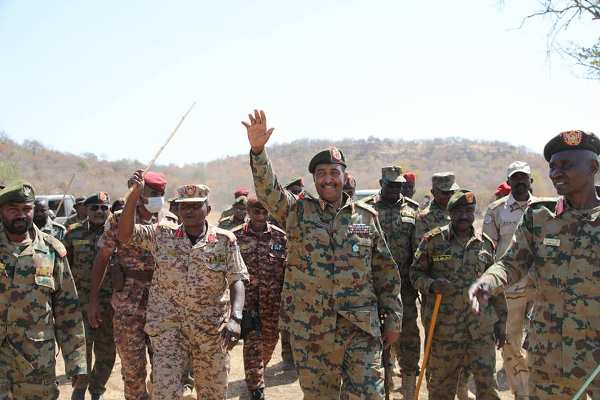Kiir, Burhan discuss border tensions with Ethiopia
December 2, 2021 (JUBA) – South Sudan’s President Salva Kiir and Chairman of Sudan’s Sovereign Council, Abdel Fattah a Burhan, discussed the border clashes between the Sudanese and Ethiopian armed forces.
Kiir told members of his government and foreign diplomats at the closing of the governors’ forum that the recent military confrontation between the Sudanese Armed forces and the Ethiopian troops and their allied militias was worrying as it causes a security threat to the region.
The South Sudanese leader revealed he spoke to the Sudanese leader to stop the further escalation.
He did not disclose his discussions with Burhan, but the call took place after the recent visit of the Sudanese military leader to border areas with Ethiopia which was perceived as signs of preparations for escalations.
“I tried to talk to General Al Burhan to stop what they might have been thinking of,” said Kiir. “I didn’t talk to Prime Minister Abiy, but I will still try to talk to him,” he added.
Sudanese authorities announced on Saturday that several of its troops were killed in the border area of Fashaga by the Ethiopian government forces and their allied militia.
The Ethiopian government denied the allegation and instead blamed the TPLF for the attack on Sudanese forces.
On Wednesday morning, the Ethiopian forces and Amhara militiamen launched an attack with heavy artillery inside Sudanese territory.”
There were no casualties, among the soldiers or civilians as a result of the attack.
South Sudanese presidential adviser on security affairs told Sudan Tribune on Wednesday they were doing their best to help President Kiir to continue to play a key role in mediation efforts and to ensure peace and stability guide activities of leaders in the region.
War, according to Tut Gatluak, was not the best option and interest of any country in the region to use as a way to resolve territorial issues.

